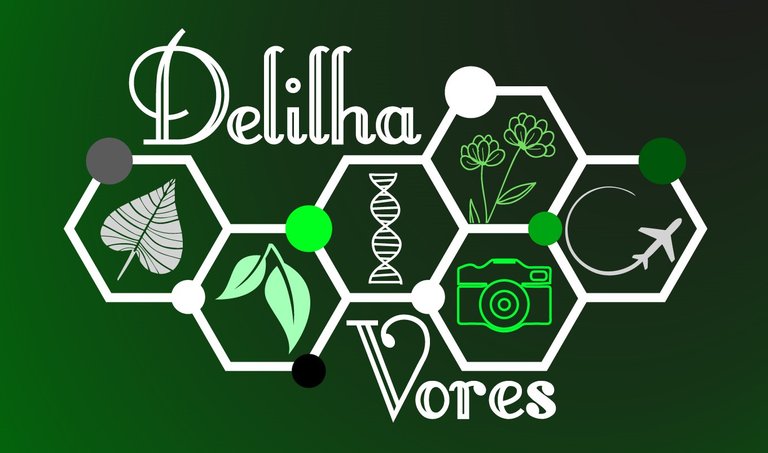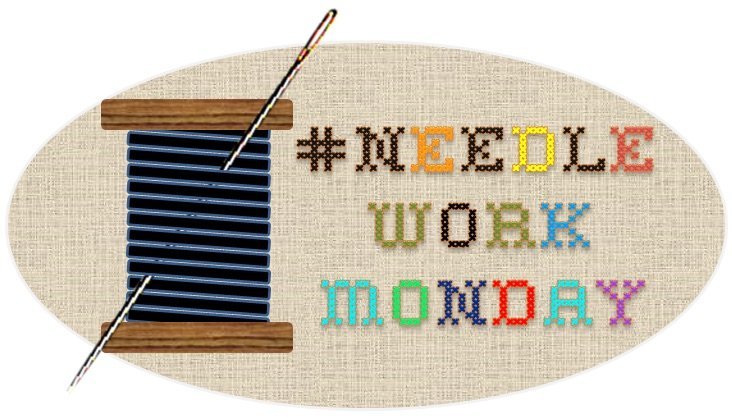Book Review: Cibo, cervello e comportamento by L. Mandolesi
Hello Hive Book Club friends!
For personal interest and for work, I have to keep up to date with the latest news in the field of nutrition. That's how I discovered today's book, which talks about the relationship between the brain, food and behavior. How do these complex connections work? And how do they affect our everyday behavior? I hope you will also find this review interesting.
Have a nice reading!
Buongiorno amici di Hive Book Club!
Per interesse personale e per lavoro, devo tenermi sempre aggiornata sulle ultime novità nel campo dell’alimentazione. Così ho scoperto il libro di oggi, che parla della relazione tra cervello, cibo e comportamento. Come funzionano queste complesse connessioni? E come influiscono sul nostro comportamento di tutti i giorni? Spero che anche voi troverete interessante questa recensione.
Buona lettura!


Technical data
Title: “Cibo, cervello e comportamento. Aspetti neurobiologici” (“Food, Brain and Behavior. Neurobiological Aspects”)
Year of publication: 2016
Publisher: Bibliotheka Edizioni
Number of pages: 80
Author
Laura Mandolesi is an Italian scientist, professor of psychology at the University of Naples Federico II. She has published several books on the subject of psychology and sociology. Her studies focus on: sport, nutrition and learning.
Plot and personal considerations
The book teaches us that our eating behavior is the result of simple but complex neuronal organizations: the hunger signal and all the choices that follow come from the brain.
In particular, the diet we adopt from an early age can influence the way we eat throughout our lives. Even the first years of life can help prevent some important metabolic diseases!
To give an example, the author tells us that the physical sensation of hunger starts in the stomach. When we feel the so-called "hunger pangs", the stomach muscles contract. For children, these contractions can be very painful and that is why when they cry because of hunger, this need must be immediately satisfied. The contractions are caused by high concentrations of ghrelin, a substance produced after a prolonged period of fasting.
Another interesting aspect discussed in the book is the concept of sugar and the circuits of addiction. Every day we are bombarded by advertisements for junk food! Consider that a can of Coca Cola contains about 30 g of sugar. But what happens in our body after drinking it? After twenty minutes, the sugar causes a strong increase in insulin and the liver responds by transforming everything into fat. After another twenty minutes, the caffeine is completely absorbed, giving the sensation of “euphoria”. This mechanism allows our brain to associate the can of Coca Cola with a state of well-being, leading us to want to drink it again on other occasions. It’s a short circuit!
Dati tecnici
Titolo: “Cibo, cervello e comportamento. Aspetti neurobiologici”
Anno di pubblicazione: 2016
Casa editrice: Bibliotheka Edizioni
Numero di pagine: 80
Autore
Laura Mandolesi è una scienziata italiana, professore di psicologia presso l’Università di Napoli Federico II. Ha pubblicato diversi libri sul tema della psicologia e della sociologia. I suoi studi si concentrano su: sport, alimentazione e apprendimento.
Trama e considerazioni personali
Il libro ci insegna che il nostro comportamento alimentare è frutto di semplici ma complesse organizzazioni neuronali: è dal cervello che parte il segnale della fame e tutte le scelte che ne conseguono.
In particolare, l’alimentazione che adottiamo fin da piccoli è in grado di influenzare il modo in cui mangiamo tutta la vita. Addirittura i primi anni di vita possono aiutare a prevenire alcune patologie metaboliche importanti!
Per fare un esempio, l’autrice ci dice che la sensazione fisica della fame parte dallo stomaco. Quando avvertiamo i cosiddetti “morsi della fame”, i muscoli dello stomaco si contraggono. Per i bambini, queste contrazioni possono essere molto dolorose ed è per questo che quando piangono per fame, bisogna immediatamente soddisfare questo bisogno. Le contrazioni sono causate dalle alte concentrazioni di grelina, una sostanza prodotta dopo un periodo di digiuno prolungato.
Un altro aspetto interessante di cui si parla nel libro è il concetto di zucchero e i circuiti della dipendenza. Ogni giorno siamo bombardati da pubblicità di cibo spazzatura! Pensate che una lattina di Coca Cola contiene circa 30 g di zucchero. Ma cosa succede nel nostro corpo dove averla bevuta? Dopo venti minuti, lo zucchero causa un forte aumento di insulina e il fegato risponde trasformando tutto in grasso. Dopo altri venti minuti, la caffeina si assorbe completamente, dando la sensazione di “euforia”. Questo meccanismo permette al nostro cervello di associare la lattina di Coca Cola a uno stato di benessere, portandoci a volerne bere ancora in altre occasioni. E’ un corto-circuito!

Favorite Quotes
“We speak of thinness when body weight falls below that considered ideal based on parameters such as age, sex and height. Although there are many tables that indicate the precise state of pathological thinness, there is no universal definition of the concept of thinness. Genetic causes, biological dysfunctions and historical-social aspects may be involved”;
“In anorexia nervosa there is a refusal of food due to the obsessive fear of gaining weight. In fact, it is no coincidence that anorexia is a term that derives from the Greek and means “loss of appetite”. People who are affected by it are mainly female and perceive a distorted image of their body”;
“Anorexia sufferers tend to show mental rigidity, considered responsible for the behaviors of avoiding food and hypothesized to be present before the onset of the disease. Recent studies have also highlighted a deficit in decision-making tasks”.
Conclusion
It’s important to emphasize that this text is dedicated to a scientific audience. In fact, some basic notions of biology, anatomy and chemistry are taken for granted. If you are simply curious about food topics, there are certainly more suitable books for you.
Personally, I found it an interesting and very easy to read text, although I would have liked some parts to be explored in greater depth.
Thanks for reading me! Do you know of other interesting books on this topic?
See you next time,
Delilha
Citazioni preferite
“Si parla di magrezza quando il peso corporeo scende al di sotto di quello considerato ideale in base ai parametri come l’età, il sesso e l’altezza. Nonostante ci siano molte tabelle che indichino lo stato preciso di magrezza patologica, non esiste universalmente una definizione del concetto di magrezza. Possono essere coinvolte cause genetiche, disfunzioni biologiche e aspetti storico-sociali”;
“Nell’anoressia nervosa vi è il rifiuto del cibo per la paura ossessiva di ingrassare. Infatti, non a caso, anoressia è un termine che deriva dal greco e significa “perdita dell’appetito”. Le persone che ne sono affette sono principalmente appartenenti al sesso femminile e percepiscono un’immagine distorta del proprio corpo”;
“Le persone anoressiche tendono a manifestare una rigidità mentale, ritenuta responsabile dei comportamenti di allontanamento del cibo e ipotizzata che sia presente prima dell’insorgere della malattia. Recenti studi hanno evidenziato anche un deficit nei compiti di decisione”.
Conclusione
E’ importante sottolineare che questo testo è dedicato a un pubblico scientifico. Infatti, sono date per scontate alcune nozioni di biologia, anatomia e chimica di base. Se sei semplicemente curioso sui temi del cibo, ci sono sicuramente libri più adatti a te.
Personalmente, l’ho trovato un testo interessante da leggere e molto scorrevole, anche se avrei voluto che alcune parti fossero approfondite in modo maggiore.
Grazie per avermi letto! Conoscete altri libri interessanti su questo tema?
Alla prossima,
Delilha







View or trade
LOHtokens.@delilhavores, You have received 1.0000 LOH for posting to Ladies of Hive.
We believe that you should be rewarded for the time and effort spent in creating articles. The goal is to encourage token holders to accumulate and hodl LOH tokens over a long period of time.
This book is super informative as it discusses food, the brain, and behavior. These all are connected with each other.
Ooh thank you very much for your comment, I'm glad that you appreciated 😊❤️
Sembra un libro molto interessante pur non essendo io fan di cose sulla nutrizione ( perché ho la coda di paglia visto laia dieta decisamente troppo ricca di grassi e il mio sovrappeso), però forse mi farebbe bene leggere qualcosa sull argomento e da come lo descrivi affronta il tema della nutrizione partendo dal cervello ed è un approccio interessante.
Grazie mille per essere passata!
Effettivamente leggere libri come questo rende le persone più consapevoli nelle scelte di tutti i giorni 😊 io credo poco nelle diete drastiche piene di rinunce, penso che siano i piccoli cambiamenti nel lungo termine a fare la differenza!😊
It is rare to see such a short yet informative book on the relationship between food and the brain. You have given a very nice review.
Thank you very much for your comment :) :)
Thank you for the support❤️